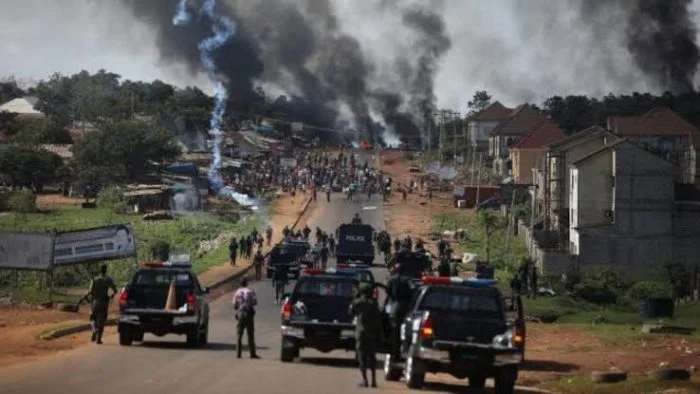On Tuesday, extremist fighters launched multiple attacks in northern Cameroon, killing eight people, including soldiers, according to a regional official. The attacks were carried out by Boko Haram militants in the towns of Mora and Zigage, which are situated along the border with Nigeria. The casualties included three customs officers, three soldiers, and two civilians, as reported by Midjiyawa Bakari, the governor of the region.
“The Boko Haram fighters are present in large numbers along the border with Nigeria, and we are relying on cooperation between the military and civilians to counter this new wave of attacks,” Bakari stated. Several individuals were also wounded in the attacks and have been hospitalized.
Boko Haram, a militant extremist group originating in Nigeria, began its insurgency in 2009, aiming to combat Western education and establish Islamic Shariah law in the country’s northeastern region. Over the years, their violent campaign has spread to neighboring West African countries, including Cameroon, Niger, and Chad. The insurgency has claimed more than 36,000 lives, predominantly in Nigeria, and displaced approximately 3 million people, according to United Nations estimates.
The Cameroonian government reported that Boko Haram fighters crossed into the country from Nigeria in significant numbers on Monday evening before launching the attacks. In response, Cameroon’s military has been deployed to protect civilians residing near the border.
Boko Haram’s insurgency began in 2009 in Nigeria’s northeastern region, primarily targeting the Nigerian government and civilians in its quest to impose strict Islamic Shariah law. Over time, the group has grown more aggressive and expanded its operations into neighboring countries, including Cameroon, Niger, and Chad. The insurgency has led to widespread violence, with Boko Haram notorious for its brutal tactics, including bombings, assassinations, and kidnappings.
The group’s activities have had a devastating impact on the region. In Nigeria alone, more than 36,000 people have lost their lives due to the conflict, and the violence has displaced around 3 million individuals, creating a humanitarian crisis. Many of those displaced have sought refuge in neighboring countries, exacerbating the challenges faced by those regions.
The expansion of Boko Haram’s operations into Cameroon, Niger, and Chad has further destabilized the Lake Chad Basin area. These countries have had to allocate significant military resources to counter the threat, often in collaboration with one another. Despite these efforts, Boko Haram remains a persistent threat, particularly in areas near the Nigerian border.
International and Regional Response
The international community has recognized the severity of the Boko Haram insurgency and its implications for regional stability. The African Union and the United Nations have both condemned the group’s actions and called for coordinated efforts to combat its influence. The Multinational Joint Task Force (MNJTF), composed of troops from Nigeria, Cameroon, Chad, Niger, and Benin, was established to coordinate military efforts against Boko Haram and has had some success in weakening the group’s operational capabilities.
However, despite these efforts, Boko Haram continues to adapt and launch attacks, particularly in border regions where national military forces are often spread thin. The group’s ability to cross borders and exploit weaknesses in security infrastructure poses a significant challenge for the countries involved.
Humanitarian Concerns and the Need for Continued Support
The ongoing violence has also led to significant humanitarian concerns. In addition to the lives lost, the displacement of millions has put a strain on resources in host communities, many of which are already struggling with poverty and lack of infrastructure. Refugee camps in Nigeria and neighboring countries are often overcrowded, with limited access to basic necessities like food, water, and medical care.
Humanitarian organizations have been working to provide relief, but the situation remains dire. The continued instability in the region has made it difficult to deliver aid effectively, and there is an urgent need for increased international support to address the humanitarian crisis.
Moreover, there is a need for comprehensive strategies that go beyond military solutions. Addressing the root causes of extremism, such as poverty, lack of education, and political marginalization, is essential to achieving long-term peace and stability in the region.



















